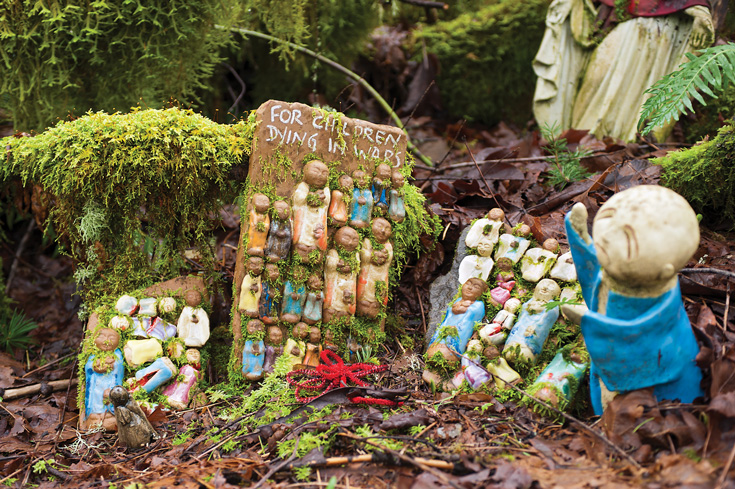
Bays made this memorial, which is in the Jizo garden at Great Vow Zen Monastery.
It’s dedicated to children who’ve died in war.
It’s dedicated to children who’ve died in war.
Zen Community of Oregon Statement of Inclusivity
The Zen Community of Oregon welcomes everyone. We study dharma together and practice for the benefit of all beings and this living earth. We recognize the suffering caused by biases, prejudices, systems of power, privilege and oppression based on race, sex, class, age, ethnicity, religion, national origin, ability, sexual orientation, and gender identity or expression. We aspire to do no harm and to dismantle barriers that cause separation and suffering, recognizing that our liberation is interconnected with the liberation of all.






